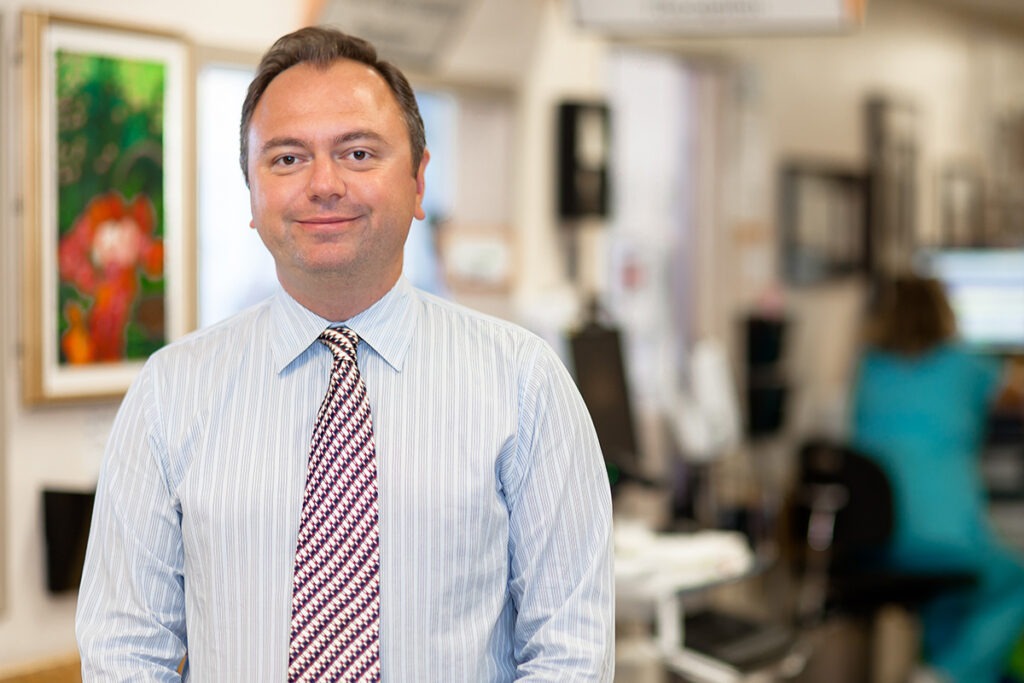Emergency care and hospitalizations higher among cannabis users, study finds

Visits to the emergency department and hospitalizations are 22 per cent higher among individuals who use cannabis compared with those who do not, according to a new study.
The study, published in BMJ Open Respiratory Research and led by researchers at Unity Health Toronto and ICES, found serious physical injury and respiratory-reasons were the two leading causes of ED visits and hospitalizations among cannabis users.
The findings suggest an association between cannabis use and negative health events, which the researchers say should underline the need to educate and remind the public of the harmful impacts of cannabis on health. Recreational cannabis use has increased in Canada since decriminalization in October 2018.

“Our research demonstrates that cannabis use in the general population is associated with heightened risk of clinically serious negative outcomes, specifically, needing to present to the ED or be admitted to hospital,” said Dr. Nicholas Vozoris, lead author, a respirologist at St. Michael’s and an associate scientist at the hospital’s Li Ka Shing Knowledge Institute.
“Unlike tobacco, there is some uncertainty or controversy regarding the adverse health impacts of cannabis. Some individuals may perceive that cannabis has some health benefits and is otherwise benign. Our research highlights to those using – or considering to use – cannabis, that this behaviour is associated with important negative health events.”
To compare health outcomes among cannabis users and individuals who don’t use cannabis, researchers used data collected in a survey of individuals who self-reported cannabis use and linked it with health administrative data from ICES for Ontario residents ages 12 to 65 years old.
Using propensity score matching – a statistical matching technique – researchers compared the health outcomes of nearly 4,800 individuals who reported any cannabis use in the preceding 12 months with the health outcomes of over 10,000 individuals who reported never having used cannabis, or having used cannabis only once and more than 12 months ago. Researchers incorporated 31 different variables while matching study participants to minimize an unfair comparison, including demographics, multiple physical and mental health diseases, and tobacco, alcohol and illicit drug use.
The primary goal of the study was to explore whether there was a link between cannabis use and respiratory-related hospitalization or ED visits. The researchers found no significant associations between cannabis use and respiratory-related ED visits, hospitalizations, or death from any cause. However, they did find that overall visits to the ED or hospitalizations for any reason was significantly higher among cannabis users.
In addition to having greater odds of going to the ED or being hospitalized, the findings show that one of every 25 people who use cannabis will go to the emergency department (ED) or be admitted to hospital within a year of using cannabis.
Among the reasons cannabis users went to the ED or were hospitalized, acute trauma – defined as bodily injury – was the most common, with 15 per cent of cannabis users who got medical attention receiving it for this reason, and 14 per cent receiving care for respiratory reasons.
“The results of our research support that health care professionals and government should discourage recreational cannabis consumption in the general population. Given the context of cannabis decriminalization in Canada, which has very likely facilitated the broader use of this product in the population, more efforts need to made from our health and political leaders to educate and remind citizens about the harmful impacts of cannabis on health,” said Dr. Vozoris, who is also a scientist at ICES.
About St. Michael’s
St. Michael’s Hospital provides compassionate care to all who enter its doors. The hospital also provides outstanding medical education to future health care professionals in more than 27 academic disciplines. Critical care and trauma, heart disease, neurosurgery, diabetes, cancer care, care of the homeless and global health are among the Hospital’s recognized areas of expertise. Through the Keenan Research Centre and the Li Ka Shing International Healthcare Education Centre, which make up the Li Ka Shing Knowledge Institute, research and education at St. Michael’s Hospital are recognized and make an impact around the world. Founded in 1892, the hospital is fully affiliated with the University of Toronto.
About Unity Health Toronto
Unity Health Toronto, comprised of St. Joseph’s Health Centre, St. Michael’s Hospital and Providence Healthcare, works to advance the health of everyone in our urban communities and beyond. Our health network serves patients, residents and clients across the full spectrum of care, spanning primary care, secondary community care, tertiary and quaternary care services to post-acute through rehabilitation, palliative care and long-term care, while investing in world-class research and education. For more information, visit www.unityhealth.to.
About ICES
ICES is an independent, non-profit research institute that uses population-based health information to produce knowledge on a broad range of health care issues. Our unbiased evidence provides measures of health system performance, a clearer understanding of the shifting health care needs of Ontarians, and a stimulus for discussion of practical solutions to optimize scarce resources. ICES knowledge is highly regarded in Canada and abroad, and is widely used by government, hospitals, planners, and practitioners to make decisions about care delivery and to develop policy. In October 2018, the institute formerly known as the Institute for Clinical Evaluative Sciences formally adopted the initialism ICES as its official name. For the latest ICES news, visit www.ices.on.ca.
